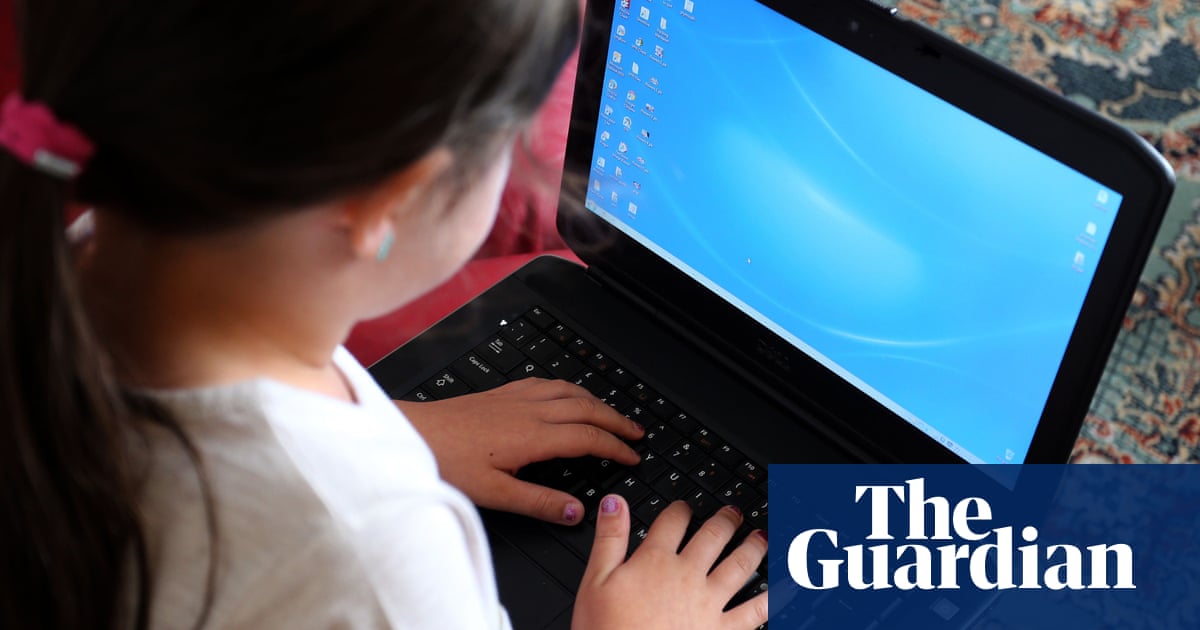Almost half of UK families with children lack the online skills or access to devices, data and broadband required to participate in today’s digital society, research shows, with an expert saying this divide is an “amplifier of other exclusions”.
Research shared exclusively with the Guardian found that 45% of households with children did not meet the threshold. Families from low socioeconomic backgrounds in deprived areas and households outside London were among those who were less likely to meet it. Households from minority ethnic backgrounds and those with disabled parents were twice as likely to fall below it.
The research was led by experts at the University of Liverpool, Loughborough University, and the digital inclusion charity the Good Things Foundation, with input from other universities. It used a series of focus groups to develop a “minimum digital living standard” that measures households’ digital abilities and their access to goods and services.
“For the first time, we have a benchmark – defined by the public – about what families think is ‘enough’ to feel included in our digital society today,” said Emma Stone, the director of evidence and engagement at the Good Things Foundation.
“Government, businesses and service providers are driving ahead with digital transformation assuming that families are equally able to engage online. Today’s research shows this is not true.”
The lead researcher, Prof Simeon Yates, of the University of Liverpool, said the high proportion falling below this benchmark was disappointing but unsurprising. “People may be surprised, because in every show from crime to romance, people are living a digital life – but we know that a very large number of people don’t live in that world.
“Covid shone a very harsh light on this when kids couldn’t get access to education … We’re trying to get people to have a grown-up conversation about it: it’s not just about having a laptop, it’s about connecting to skills, employment, wellbeing,” Yates said, labelling the digital divide as “an amplifier of other exclusions” from sectors such as health and education.
The research surveyed more than 1,500 UK households to assess whether they met the benchmark, finding that poverty was a key predictor for falling below it, at a time where Ofcom figures show 28% of households are having difficulty affording the cost of broadband and other communication services.
The report recommends a “holistic” response to boost digital inclusion, calling for public, voluntary and private sector organisations to consider how they can reduce the digital barriers that many face.
Almost four in 10 (38%) of households struggled with online skills, with parents or children, or both, having inadequate functional or critical digital abilities. For parents who lacked functional skills (17%), it could mean being unable to create an email account or make online payments.
after newsletter promotion
The research found that 27% of households were led by parents missing critical digital skills, such as those needed to protect their family from online harms such as scams, bullying and grooming, raising concerns for children’s online safety. A smaller proportion (18.5%) did not fully meet the equipment and services threshold, lacking one or more of broadband, TV or devices.
Eman’s family of five shared one laptop until recently. It made it difficult for her 12-year-old daughter to complete her daily online homework, as her older daughter, 16, needed the machine to study for her GCSEs. The family in Yorkshire were recently given a second laptop by the Learn for Life hub, which is part of the Good Things Foundation’s network.
“When we got this laptop, my younger daughter started to study more. Before she couldn’t do it [as easily], because my older daughter was using it all the time – her GCSEs are very important,” Eman said. The parent, who has lived in the UK for two years, said it had also helped her to develop her English skills.
She said her younger daughter had often relied on using a smartphone but struggled to work on the small screen. “Before, my younger daughter was waiting on her sister until it was late to do her homework, and now she can do it when she comes home. It makes it much easier for her and us also – it was a lot of pressure on the household.”







